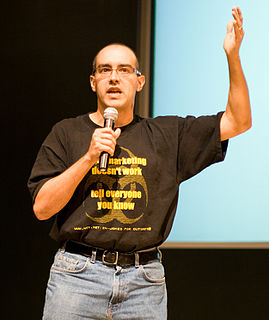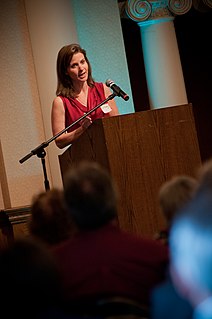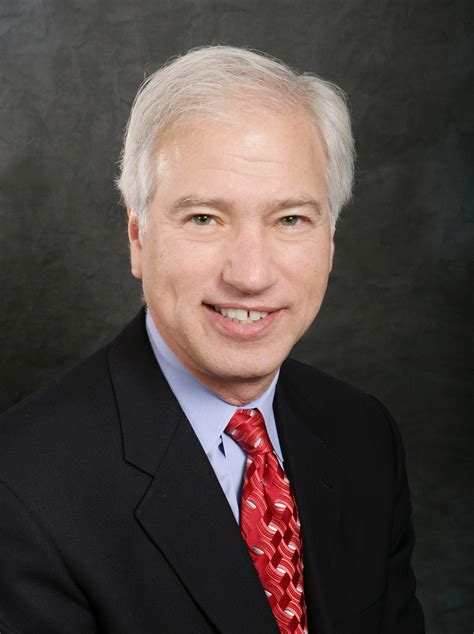A Quote by Dave McClure
There were never as many big businesses as people were piling money into in the late 90's or early 2000's. This is really a lesson to institutional investors about how much capital the market can absorb, and it's a 10-year adjustment cycle, and we're only beginning to wake up to that.
Related Quotes
Where you want to be is always in control, never wishing, always trading, and always first and foremost protecting your ass. That's why most people lose money as individual investors or traders because they're not focusing on losing money. They need to focus on the money that they have at risk and how much capital is at risk in any single investment they have. If everyone spent 90 percent of their time on that, not 90 percent of the time on pie-in-the-sky ideas on how much money they're going to make, then they will be incredibly successful investors.
I talked with people starting up in the middle of the recession and employees, and supplies and office space were cheap. As far as companies that are already in existence, many became more creative with how they spent their money. A lot of them stopped wasting money that they didn't know they were wasting after they looked hard at their businesses. Some had to change business models because of the economy. Their market didn't exist or wasn't as big anymore.
10 years ago [in 2006], nearly 90 percent of those albums sold enough in that year to reach Gold status. 10 years later, about 30 percent were eligible. With the new rules, we figure about 40 percent of the top 200 best-sellers for the year will be eligible. We were very cautious in our approach to changing how we calculate what is eligible because the integrity of the process is our foremost consideration. It's difficult to get certified sales awards, and it's a big deal and we didn't want there to be a huge change in how many would be eligible.
How many of the unicorn companies are really prosaic businesses - like limousine services or renting rooms in your house? The original VC firms from the '70's made their money and established the reputation of their respective brands by leveraging big cleverness with small capital, not small cleverness with big capital, and that's what's going on with these unicorns. That has never worked and it won't work this time. It doesn't produce venture quality returns, and it never will.
State funds, private equity, venture capital, and institutional lending all have their role in the lifecycle of a high tech startup, but angel capital is crucial for first-time entrepreneurs. Angel investors provide more than just cash; they bring years of expertise as both founders of businesses and as seasoned investors.
If the investors themselves are not sophisticated, if they themselves are not putting a lot of their own money to work, if they themselves don't understand the continuum of capital and how different parts of the capital structures react differently, then they're basically worthless. They're not going to give great advice to these entrepreneurs who then need it. So that is unfortunately the cycle we're in and we have to break the cycle.
It never was my thinking that made the big money for me. It always was my sitting. Got that? My sitting tight! It is no trick at all to be right on the market. You always find lots of early bulls in bull markets and early bears in bear markets. I've known many men who were right at exactly the right time, and began buying or selling stocks when prices were at the very level which should show the greatest profit. And their experience invariably matched mine--that is, they made no real money out of it. Men who can both be right and sit tight are uncommon.
I was a young feminist in the '70s. Feminism saved my life. It gave me a life. But I saw how so much of what people were saying was not matching up with what they were doing. For example, we were talking about sister solidarity, and women were putting each other down. We were talking about standing up for our rights, and women weren't leaving abusive relationships with men. There were just so many disconnects.
We thought that the odds of things working OK were up in the upper 90 percent or we wouldn't have gone. But the - there were some problems cropped up on the flight but was able to take care of those OK and - although they were things that we hadn't really trained that much for. But it was the time of the Cold War and so there were was a lot of pressure on the - to get going and the Russians were claiming that they were - Soviets were claiming they were ahead of us in technology.



































